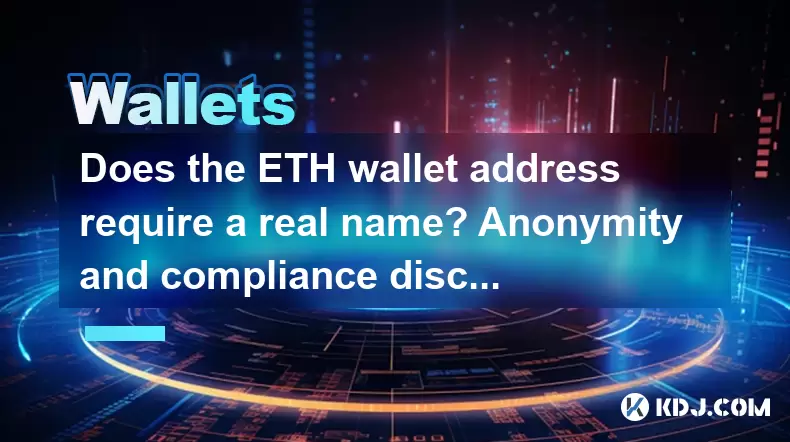-
 Bitcoin
Bitcoin $115000
0.12% -
 Ethereum
Ethereum $3701
4.50% -
 XRP
XRP $3.081
2.99% -
 Tether USDt
Tether USDt $0.0000
-0.01% -
 BNB
BNB $767.9
1.45% -
 Solana
Solana $169.5
3.13% -
 USDC
USDC $0.9999
0.01% -
 Dogecoin
Dogecoin $0.2106
4.30% -
 TRON
TRON $0.3334
1.62% -
 Cardano
Cardano $0.7564
2.54% -
 Stellar
Stellar $0.4165
0.76% -
 Hyperliquid
Hyperliquid $38.75
0.25% -
 Sui
Sui $3.593
3.00% -
 Chainlink
Chainlink $17.08
3.59% -
 Bitcoin Cash
Bitcoin Cash $573.6
4.35% -
 Hedera
Hedera $0.2508
-0.84% -
 Avalanche
Avalanche $23.07
6.46% -
 Ethena USDe
Ethena USDe $1.001
-0.02% -
 Litecoin
Litecoin $120.8
8.17% -
 UNUS SED LEO
UNUS SED LEO $8.943
-0.32% -
 Toncoin
Toncoin $3.400
-5.60% -
 Shiba Inu
Shiba Inu $0.00001255
1.54% -
 Uniswap
Uniswap $9.908
6.32% -
 Polkadot
Polkadot $3.718
2.10% -
 Monero
Monero $303.0
-0.74% -
 Dai
Dai $0.9999
-0.02% -
 Bitget Token
Bitget Token $4.392
0.91% -
 Cronos
Cronos $0.1403
6.31% -
 Pepe
Pepe $0.00001076
1.13% -
 Aave
Aave $267.2
1.80%
Does the ETH wallet address require a real name? Anonymity and compliance discussion
An ETH wallet address doesn't require a real name, but using centralized exchanges may link your identity to it due to KYC regulations.
May 14, 2025 at 07:50 am

The topic of whether an Ethereum (ETH) wallet address requires a real name touches on broader issues of anonymity and compliance within the cryptocurrency ecosystem. To address this question and its implications, it's essential to delve into the mechanics of Ethereum wallet addresses, the concept of anonymity in cryptocurrencies, and the regulatory frameworks that impact these elements.
Understanding Ethereum Wallet Addresses
Ethereum wallet addresses are alphanumeric strings that serve as the destination for sending and receiving ETH and other tokens on the Ethereum blockchain. These addresses are generated from public keys, which are derived from private keys. The process of generating these addresses does not inherently require any personal information, including real names.
- Generating an ETH wallet address typically involves the following steps:
- Choose a wallet provider or software that supports Ethereum.
- Create a new wallet or import an existing one using a seed phrase or private key.
- The wallet software will generate a public address that can be used for transactions.
This process is designed to be anonymous, as the wallet address itself does not contain any personal information.
Anonymity in Ethereum Transactions
Anonymity is a key feature often associated with cryptocurrencies, and Ethereum is no exception. When you send or receive ETH, the transaction is recorded on the blockchain, but the wallet address does not reveal the identity of the owner. This level of anonymity allows users to engage in transactions without disclosing their real names.
However, complete anonymity is not guaranteed. Various methods can be used to trace transactions back to individuals, including:
- Blockchain analysis tools that track the flow of funds across the network.
- KYC (Know Your Customer) requirements imposed by centralized exchanges and other regulated entities, which can link wallet addresses to real identities.
Compliance and Regulatory Frameworks
The regulatory landscape surrounding cryptocurrencies has evolved significantly, impacting the anonymity of transactions. Compliance measures, such as KYC and AML (Anti-Money Laundering) regulations, are designed to prevent illicit activities and ensure that financial systems are not abused.
- KYC requirements often mandate that users provide personal information, including real names, to use certain services. For instance, when you sign up for an account on a centralized exchange, you are typically required to undergo a KYC process.
- Decentralized exchanges (DEXs) and other non-custodial platforms may not require KYC, but they still operate within the broader regulatory environment that seeks to curb illegal activities.
Real Name Requirements for ETH Wallet Addresses
To directly address the question: No, an ETH wallet address itself does not require a real name. The generation and use of an ETH wallet address can be done anonymously. However, the context in which you use the wallet address can change this dynamic.
- Using an ETH wallet address on a centralized exchange typically involves KYC, which means your real name will be linked to the wallet address you use on that platform.
- Using an ETH wallet address on a decentralized platform might not require KYC, but if you convert your ETH to fiat currency or engage in other regulated activities, your identity might still be required.
Balancing Anonymity and Compliance
The tension between anonymity and compliance is a central issue in the cryptocurrency space. Users value the privacy and freedom that cryptocurrencies offer, but regulatory bodies are tasked with ensuring that these systems are not used for illegal purposes.
- Privacy-focused solutions like privacy coins and mixing services aim to enhance the anonymity of transactions, but they also face scrutiny from regulators.
- Regulatory frameworks continue to evolve, with different jurisdictions adopting varying approaches to balancing privacy and compliance.
Practical Implications for ETH Users
For those using Ethereum, understanding the implications of anonymity and compliance is crucial. Here are some practical considerations:
- If you value anonymity, consider using decentralized platforms and privacy-enhancing tools. However, be aware of the legal risks associated with non-compliance.
- If you need to comply with regulations, use centralized services that require KYC and ensure you understand the implications for your privacy.
- Always be mindful of the context in which you use your ETH wallet address, as this can impact whether your real name is required or linked to your transactions.
Frequently Asked Questions
Q: Can I use an ETH wallet address completely anonymously?
A: While you can generate and use an ETH wallet address without providing a real name, complete anonymity is difficult to achieve. Transactions on the blockchain are public, and various methods exist to trace them back to individuals. Additionally, if you use centralized services or convert your ETH to fiat, your identity may be required.
Q: What happens if I use my ETH wallet address on a platform that requires KYC?
A: If you use your ETH wallet address on a platform that requires KYC, your real name and other personal information will be linked to that address within the platform's records. This does not change the address itself, but it means your identity is tied to the transactions you make through that platform.
Q: Are there any risks associated with maintaining anonymity in ETH transactions?
A: Yes, there are risks. Using methods to maintain anonymity, such as privacy coins or mixing services, can attract regulatory scrutiny and potentially lead to legal issues. Additionally, if you engage in activities that are deemed illegal, maintaining anonymity might not protect you from legal consequences.
Q: How can I protect my privacy while still complying with regulations?
A: To protect your privacy while complying with regulations, consider using a combination of centralized and decentralized services. Use centralized exchanges for necessary KYC-compliant activities, but keep the majority of your funds in self-custody wallets. Utilize privacy-enhancing tools where possible, but stay informed about the legal landscape in your jurisdiction.
Disclaimer:info@kdj.com
The information provided is not trading advice. kdj.com does not assume any responsibility for any investments made based on the information provided in this article. Cryptocurrencies are highly volatile and it is highly recommended that you invest with caution after thorough research!
If you believe that the content used on this website infringes your copyright, please contact us immediately (info@kdj.com) and we will delete it promptly.
- Velo Universe, DEX, and DeFi Security: Navigating the Future of Decentralized Trading
- 2025-08-05 09:25:13
- Bitget Wallet Revolutionizes Solana with Gas-Free Transactions: A New Era for DeFi
- 2025-08-05 09:25:13
- Ozak AI, Crypto Boom, and ROI Potential: Is This the Next Big Thing?
- 2025-08-05 09:25:24
- Solana's ETF Hopes & the All-Time High Chase: Is SOL Set to Soar?
- 2025-08-05 09:25:24
- Coinbase's Brian Armstrong and the Art of Focused Work: A Deep Dive
- 2025-08-05 09:25:30
- Uniswap Price Prediction: Bullish Reversal on the Horizon?
- 2025-08-05 09:25:30
Related knowledge

How to add TRC20 token to Trust Wallet?
Aug 04,2025 at 11:35am
Understanding TRC20 and Trust Wallet CompatibilityTrust Wallet is a widely used cryptocurrency wallet that supports multiple blockchain networks, incl...

What is a watch-only wallet in Trust Wallet?
Aug 02,2025 at 03:36am
Understanding the Concept of a Watch-Only WalletA watch-only wallet in Trust Wallet allows users to monitor a cryptocurrency address without having ac...

Why can't I connect my Trust Wallet to a DApp?
Aug 04,2025 at 12:00pm
Understanding DApp Connectivity and Trust WalletConnecting your Trust Wallet to a decentralized application (DApp) is a common process in the cryptocu...

How to fix a stuck pending transaction in Trust Wallet?
Aug 03,2025 at 06:14am
Understanding Why Transactions Get Stuck in Trust WalletWhen using Trust Wallet, users may occasionally encounter a pending transaction that appears t...

What is a multi-coin wallet in Trust Wallet?
Aug 03,2025 at 04:43am
Understanding Multi-Coin Wallets in Trust WalletA multi-coin wallet in Trust Wallet refers to a digital wallet that supports multiple cryptocurrencies...

How to switch between networks in Trust Wallet?
Aug 02,2025 at 12:36pm
Understanding Network Switching in Trust WalletSwitching between networks in Trust Wallet allows users to manage assets across different blockchains s...

How to add TRC20 token to Trust Wallet?
Aug 04,2025 at 11:35am
Understanding TRC20 and Trust Wallet CompatibilityTrust Wallet is a widely used cryptocurrency wallet that supports multiple blockchain networks, incl...

What is a watch-only wallet in Trust Wallet?
Aug 02,2025 at 03:36am
Understanding the Concept of a Watch-Only WalletA watch-only wallet in Trust Wallet allows users to monitor a cryptocurrency address without having ac...

Why can't I connect my Trust Wallet to a DApp?
Aug 04,2025 at 12:00pm
Understanding DApp Connectivity and Trust WalletConnecting your Trust Wallet to a decentralized application (DApp) is a common process in the cryptocu...

How to fix a stuck pending transaction in Trust Wallet?
Aug 03,2025 at 06:14am
Understanding Why Transactions Get Stuck in Trust WalletWhen using Trust Wallet, users may occasionally encounter a pending transaction that appears t...

What is a multi-coin wallet in Trust Wallet?
Aug 03,2025 at 04:43am
Understanding Multi-Coin Wallets in Trust WalletA multi-coin wallet in Trust Wallet refers to a digital wallet that supports multiple cryptocurrencies...

How to switch between networks in Trust Wallet?
Aug 02,2025 at 12:36pm
Understanding Network Switching in Trust WalletSwitching between networks in Trust Wallet allows users to manage assets across different blockchains s...
See all articles

























































































